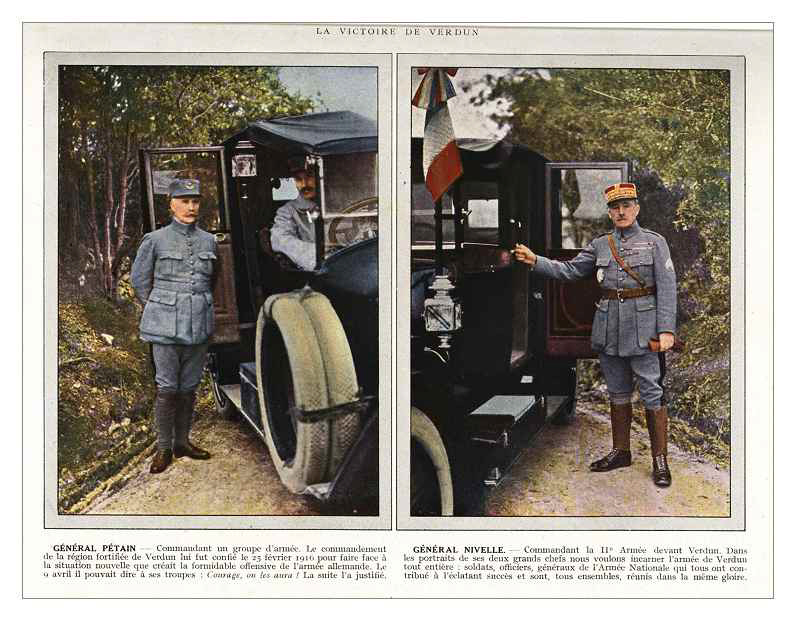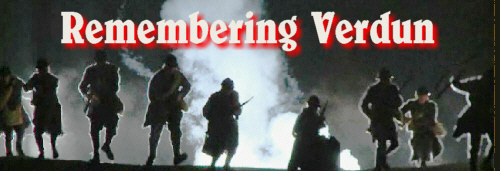Verdun: The Lost History of the Most Important Battle of World War I, 1914–1918
by John Mosier
Published by Oxford University Press, 2013
The title notwithstanding, this book is a very good preparatory reading for WWI. Dr. Mosier covers a number of topics: geography and the French ignorance of their country, French and German history prior to WWI, railroads and their usefulness/limitations, and military preparedness. He explains in detail why French artillery was terribly inadequate and inaccurate, German artillery quite superior and its impact upon tactics and success. The army's bureaucratic defense of artillery contributes to a discussion of military intransigence and the struggles within the army regarding staffing, training, and promotions. French politics are reviewed along with their divisive role in military preparedness and general government.
The Lost History. . . is actually a buried history. The French Army controlled all information (disinformation?), including casualties and thus the direction/status of the war. The French extrapolated German casualties from their own and claimed the enemy was being bled white while the reverse was closer to the truth. Further, each layer of command lied to the one above it as to the results of the latest offensive effort. While Joffre claimed that Verdun had three lines of defense, there was only one line of trenches and the others were just scratches in the earth. Many of the forts had been denuded of their artillery, ancient as it was, to make up for losses on other battlefields. The army stripped Fort Douaumont of so many military assets that it was seized by a few German soldiers who walked in and demanded the surrender of the elderly reservists. Nevertheless, the army claimed a ferocious battle with many German casualties had been fought. At book's end, Mosier compares the facts of Verdun to an ossuary, a jumble of buried matter.
Nor were lies limited to the French. David Lloyd George wrote in his memoirs of how the British Army understated casualties, overstated enemy losses, with bad news hidden and good news glorified. Additionally, the 1918 contribution of American troops was denigrated by British historians. Yet von Hindenburg attributed the Allied victory to American infantry in the Argonne.
Order Now |
Nor were lies limited to the French. David Lloyd George wrote in his memoirs of how the British Army understated casualties, overstated enemy losses, with bad news hidden and good news glorified. Additionally, the 1918 contribution of American troops was denigrated by British historians. Yet von Hindenburg attributed the Allied victory to American infantry in the Argonne.
Click on Image to Expand
 |
| At the end of 1916 the reputations of French generals Philippe Pétain and Robert Nivelle were at a pinnacle. Nivelle's would be destroyed by the ill-fated 1917 offensive that bears his name. Pétain's, of course, would last until the Second World War. |
An even more basic misunderstanding is that Verdun was not one battle lasting several months but a series of battles, sometimes irrelevant to each other, and were not even close to Verdun, a small and militarily insignificant city, but were dispersed over a section of France that was geographically understood by very few. Mosier claims that the battle of Verdun began with the 1914 semi-fictional battle of the Marne and lasted through October 1918, when the Americans crossed the Meuse.
The crux of the book is summed up in a quote from Sir Max Beerbohm, "History, it has been said, does not repeat itself. The historians repeat one another." Mosier points out how a postwar travel ad became the basis for the astronomical casualties around Verdun which was repeated by everyone until it became a historical "fact."
While the book has maps, I found them too small with tiny print and thus inadequate. One map did not have a scale and the others were not described as English or metric although the text uses only the metric system. The text is very readable but at times too casual, "Denial is not only a river in Egypt." Despite this, the book is worth the read because of its preparatory information, fresh viewpoints, and continual struggles with official "truth."
Ron Drees
The crux of the book is summed up in a quote from Sir Max Beerbohm, "History, it has been said, does not repeat itself. The historians repeat one another." Mosier points out how a postwar travel ad became the basis for the astronomical casualties around Verdun which was repeated by everyone until it became a historical "fact."
While the book has maps, I found them too small with tiny print and thus inadequate. One map did not have a scale and the others were not described as English or metric although the text uses only the metric system. The text is very readable but at times too casual, "Denial is not only a river in Egypt." Despite this, the book is worth the read because of its preparatory information, fresh viewpoints, and continual struggles with official "truth."
Ron Drees


Sounds like a powerfully revisionist account. Were you ultimately convinced?
ReplyDeleteSo different from Jankowski's recent book, Verdun: The Longest Battle of the Great War.
ReplyDeleteWill we ever know the full truth? D. Beer
Is he really saying that the casualty figures for the fighting around Verdun were not that great? No doubt there were mahy half-truths but I doubt that one.
ReplyDeleteAnd I wouldn't trust anything that Lloyd George wrote; he had an anti-establishment agenda throughout the war and afterward.
Bravo. At the 100 year point perhaps a deeper look into events is warranted. We have more available sources now. Maybe academia can look beyond the references, such as Lloyd George, that have acted as our beacon to more first hand accounts.
ReplyDelete